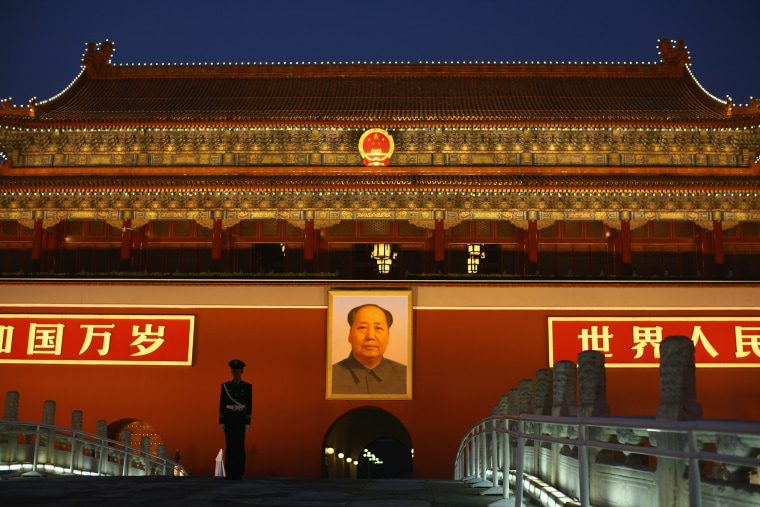China's senior leadership agreed Wednesday on a list of candidates for top posts in the ruling Communist Party, then forwarded it to a national congress that will have a modicum of choice in determining the future lineup for running the country.
In a break with past practice, state media announced that a list of members recommended to join the party's Central Committee had been approved by a panel of senior leaders handling arrangements for the congress — but the list itself was not released.
The report was in keeping with President Hu Jintao's baby steps in bringing some transparency to the party's decision-making. In opening the conclave Monday, he said more democratic processes are needed in a rapidly changing China, but he stressed that didn't mean Western-style democracy.
The announcement of the candidate list's adoption appeared aimed at showing the party as "more rule-bound, more beholden to the process," said Ding Xueliang, a politics analyst with the Carnegie Foundation for Peace in Beijing. "It helps back up the concept that the party is moving ahead with intraparty democracy."
Housing activist beaten
Outside the closed-door deliberations in the Great Hall of the People, however, authorities pressed ahead with a renewed crackdown on dissent.
A housing activist and underground Christian preacher, Hua Huiqi, was beaten by police for the second time in a week when he tried to leave home, where he is under house arrest, said his wife, Wei Jumei.
"They are doing this because of the 17th party congress, but also because police asked him to cooperate by providing a list of petitioners and Christians he knows, but he refused," Wei said.
The moves in the congress and outside are characteristic of Hu's era. The party has talked about reform and accepts carefully couched criticism from people within the system, but it suppresses those seen as threats.
Wednesday's announcement that a candidate list for Central Committee spots had been finalized sets in motion a closed-door process that will play out over the remaining four or five days of the congress, which is held once every five years.
State-run China Central Television showed Hu and other members of the congress Presidium raising their hands to approve the list. The names will be passed on to the more than 2,200 delegates for deliberation, CCTV said.
Party officials have said the number of Central Committee candidates would exceed the number of seats available — a measure introduced in the 1980s to allow some competition. Five years ago, 5 percent of candidates were eliminated. Officials have not said what the margin would be this year, but there has been speculation it might rise to as much as 10 percent.
How power is structured
Once the new Central Committee, usually about 400 full and alternate members, is chosen, it will select a Politburo, which currently has 24 members, and the Politburo Standing Committee, which now has nine seats and is the apex of power.
With at least two Standing Committee members retiring because of age and one slot vacant due to a death, deciding the new leadership lineup is the most important task before the congress.
Speculation about the top candidates has been furious among political watchers and officials up-and-down the party and civil service whose careers often depend on personal ties.
Hu's spot as party leader is not under threat, but he is believed to face challenges in promoting allies, including a potential successor for when he steps down, perhaps in five years.
A protege, Li Keqiang, the 52-year-old party head of the industrial province of Liaoning, has encountered resistance from other party leaders who fear giving Hu too much sway.
As it kept the names of the Central Committee candidates secret, the party also has not revealed how many seats are up for grabs.
Such secrecy is in keeping with the party's standard practices, but "it is a little ironic given all the recent talk about building democracy within the party," said Jean-Pierre Cabestan, a China politics expert at Hong Kong Baptist University.
Ouyang Song, vice minister of the party's Central Committee Organization Department, suggested to reporters that whatever reforms take place, there will always be limits to the 73 million-member party's openness.
"Democracy is the party's lifeline, but unity is also the party's lifeline," Ouyang said.
